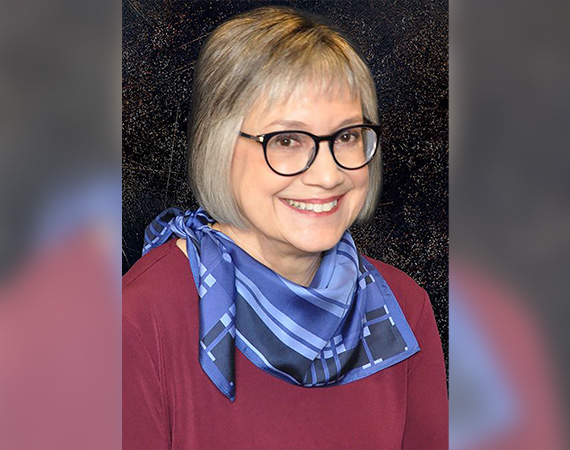Debby Hoel has worked for the past 30 years in business and human resources management. She currently serves as president of the Lakes Area Manufacturers Alliance and as a benefits and human resources advisor for Trinity Business Partners. The alliance works to encourage students to consider manufacturing careers while also providing networking opportunities for manufacturing leaders in the area.
Enterprise Minnesota has just released the results of its latest State of Manufacturing® survey. What is the significance of this data?
Debby Hoel: This survey provides incredibly valuable information to manufacturers in every part of Minnesota. It gives us perspective on what is happening in our industry. I work in northern Minnesota. The interesting thing for us is that the issues we have are like those faced by manufacturers in southern Minnesota and the Twin Cities.
Everyone will agree that the worker shortage is a huge concern — and that isn’t likely to change anytime soon. We knew there were enormous numbers of baby boomers ready to retire, along with decreasing numbers of students entering the trades. That was bound to create workforce challenges.
The COVID-19 pandemic accelerated those retirements, but the problem has been looming for some time. Initiative-taking manufacturers began recruiting and hiring additional workers to back-fill before retirement occurred while at the same time incorporating robotics to supplement.
The number of people we were able to recruit used to be related to the size of a community. It has always been more of a challenge to get workers and supplies in smaller communities, and shipping for manufacturers in those areas can be challenging too. Such challenges are happening throughout manufacturing, and everywhere in Minnesota.
We must work together to find solutions. The survey gives us a chance to exchange ideas. This information has always been important, but it might be as valuable now as it ever will be.
The solutions might be different depending on each manufacturer’s situation, but the issues are similar. The more information we share, the more likely we are to find solutions that work for everyone. The State of Manufacturing survey gives us a great opportunity to share such information.
How does your background impact your perspective about manufacturing?
Debby Hoel: I was an unlikely candidate for manufacturing. I began my career in trade association management. A business venture with my husband in the early 1980s thrust me into manufacturing. After moving to northern Minnesota in 2001, I was fortunate to join Pequot Tool & Manufacturing in Jenkins. When I began thinking about retirement, I set a target retirement date.
I always knew my retirement would be active. Our Lakes Area Manufacturers Alliance group had retiring members too. I worried that their leaving would create a leadership void. New members needed time to adjust to their roles. I knew it would be important to continue with LAMA for at least a year, providing mentoring for newer members.
I have worked closely with Trinity Business Partners, a team of professionals in Baxter that specializes in employee benefits and business consulting services. It gave me an opportunity to provide human resources support and benefits for manufacturers.
That background gives me a good idea of what’s happening in manufacturing, especially in our area.
Your organization sponsored one of the focus groups that supplemented the State of Manufacturing research. Why was this important?
Debby Hoel: We learn so much when we share experiences and talk about the challenges and how each of us is tackling them. As manufacturers, it is important to make our voices heard. The State of Manufacturing gives us great information. These focus groups give us an opportunity to influence the ongoing discussion.
The Brainerd Lakes Chamber and LAMA have sponsored focus groups for our area for years, and I always felt it was a valuable exchange of thoughts and ideas. When we share concerns and hopes for the future, we grow professionally.
It really wasn’t hard to recruit participants for the groups. We composed a list of potential participants and sent out invitations. Everyone responded immediately. That’s an indication of how important it is right now to share information. The State of Manufacturing results are that important to our industry.
In your experience, what factors help manufacturers thrive in Minnesota?
Debby Hoel: I would tell them to invest in learning opportunities for their management, leadership, and operations teams. That’s crucial.
Networking is also critical. While our manufacturing group in the Brainerd Lakes Area may be smaller in numbers than other regions, we are always networking. We all benefit from these alliances.
Also, invest in training. Give your employees the skills they need to succeed. Everyone benefits from an investment in training. I would also suggest supporting local professional and trade organizations so that they can continue to work on your behalf.
We must find creative ways to attract younger workers to manufacturing.
It’s one step at a time, but the more we do to expose students to manufacturing will benefit the industry. We will eventually overcome the worker shortage.
The manufacturing community in our area has been a huge supporter of the Bridges Career Exploration Day, which is held each year at Central Lakes College. It’s a one-day event that attracts about 2,500 high school students. The event’s manufacturing area has been a success each year.
Bottom line, there is no magic bullet. It will take effort and an exchange of ideas to make a difference. That is why the State of Manufacturing is so important right now.
…
Featured story in the Winter 2021 issue of Enterprise Minnesota magazine.


